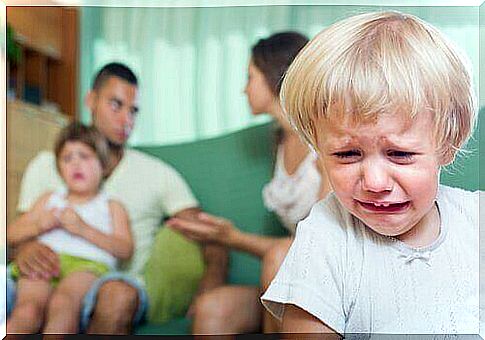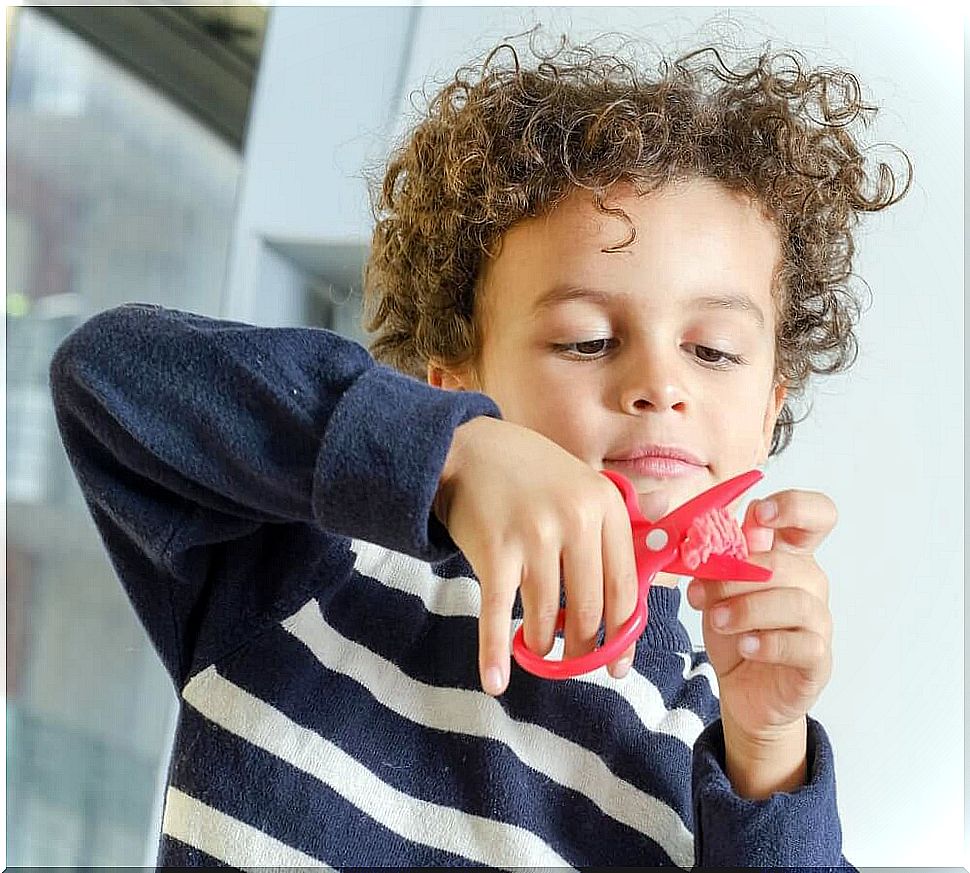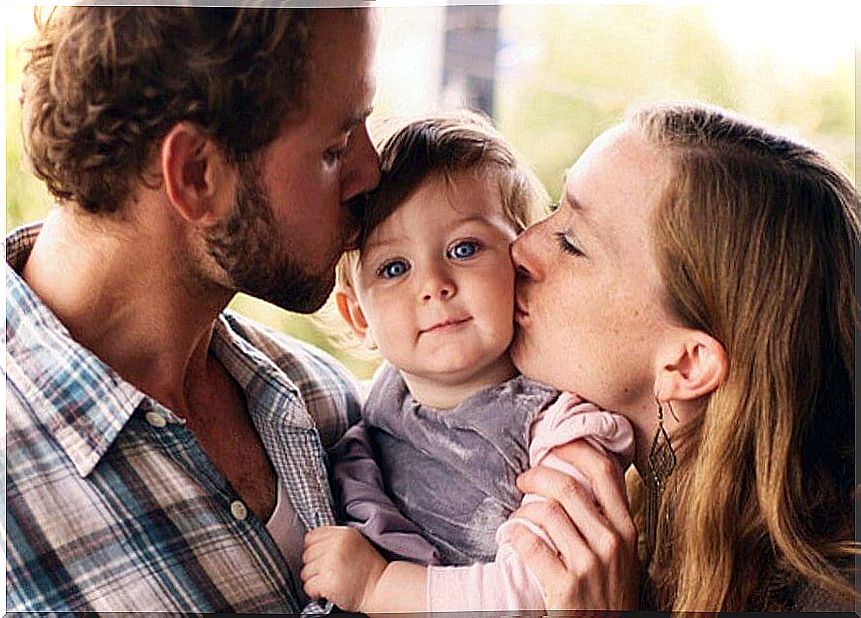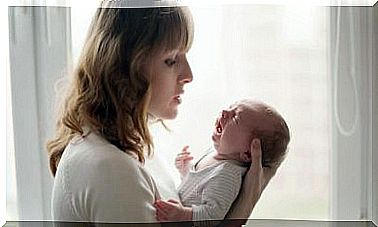The Consequences Of Arguing In Front Of Children
Arguing in front of children is one of the worst things we can do as parents. This creates a feeling of insecurity, which can lead, among other things, to anger. Let us be well aware of this as parents.

Discussions in a couple cannot be avoided. They are necessary when there are certain situations to be resolved. But what we must avoid is to make arguments about it. And, of course, try not to have arguments in front of the children.
Children who witness verbal and even physical confrontations begin to experience a sense of distress. This can turn into feelings of anger, sadness or fear. And when they’re babies, the psychological consequences are even greater.
Consequences of arguing in front of children
1. At the subconscious level, when they are babies
Newborns are able to register in their subconscious the moods of people around them, including tone of voice and gestures.
Just as they sense the love around them, they also sense when the situation is tense. When the tone of voice shows anger or when the looks express aggression.
2. In their emotional development
No matter the extent of the arguments, growing up in a tense family environment can cause profound emotional turmoil for children. Because it can lead to issues like anxiety and low self-esteem.
A calm environment, where the child is not involved in conflicts between adults, contributes to a harmonious psychological development.
3. In a preschooler
At this stage, children have not yet fully developed language and seek to express themselves through non-verbal communication. Therefore, after an argument, they may cry or become insolent, making it difficult to comfort them.
Older children, but still in preschool age, are not yet aware of the causes of conflicts and their thoughts, still centered on themselves, lead them to take responsibility for the altercation, even to feel guilty for the tension between their families. parents.
Reactions may vary from child to child. Some act as if nothing has happened, others may be afraid that something terrible is happening to them and isolate themselves from the outside world until they feel safe.
They often express their dissatisfaction through changes in sleep patterns or in eating. They can return to earlier stages of development such as bedwetting, irritability or aggressiveness in the practice of their activities.
4. In the case of a school-age child

At this age, they begin to understand what is going on. They may experience fear or anxiety and have feelings of guilt towards the father or mother.
This guilt forces them to take sides; girls are often on their mothers’ side, while boys tend to defend their fathers.
How Do Frequent Small Discussions Affect Children?
Usually, children get used to frequent little arguments. It is precisely the latter that create an unstable family climate. In such an environment, the child understands that a small detail can spoil a pleasant moment.
The child may feel the need to take control of the situation. Also, he may happen to not express his real needs to avoid grief. Violent arguments have even more serious effects on a child’s self-confidence.
Children and arguments with insults
The child should never be used to insult or go against the other parent, especially when the final separation has already taken place. It is important to avoid arguments, especially noisy ones, the night before the child falls asleep, as this is a crucial time for them.
Discussions exist in all families, but it is important to make an effort to be understanding because each human being is different. Ideally, the child should grow up in a happy home.
Arguing in a place away from children
Arguments should always take place where children are not present. They may know their parents had a fight, but they won’t feel like they were part of the confrontation.
Children, especially younger ones, are not able to interpret beyond words. They take everything literally.
If children hear parents say phrases like: “Enough is enough!”, “I’m sick of you!”, “I never want to see you again!” Not only will they feel hurt, but it will also create insecurity for them because they think their parents may be separated.
Couple and family therapy
In the event of conflicts and problems, couples therapy can improve communication and restore balance between spouses. Family therapy is ideal when the child has inappropriate behavior or psychosomatic symptoms that require professional intervention.
In this process, the therapist helps the whole family to promote positive relationships.
Talking with the children
Sometimes it is inevitable to have a discussion in the presence of the children. In these cases, it is important to explain to them that everyone is arguing, even when we love each other.
Take advantage of the dialogue time to explain that an argument doesn’t mean that you don’t love each other as a couple, let alone that you don’t appreciate them anymore.
If the conflict has already been resolved, it can be used for family activities, but if it has not, it should not be pretended that it is, as children are able to perceive voltage.
Parents as role models

We must not forget that parents are a fundamental role model for children.
Seeing one parent being verbally or physically abused by the other will create a deep wound that can have consequences on the personality of the child and on the adult he will become. It will also have repercussions on future life with friends and relationships.
It is essential to teach them that when people have different opinions on a topic, they can always resort to dialogue. That an atmosphere of tolerance and respect can be created, without the need to get angry, shout or say nasty words.









